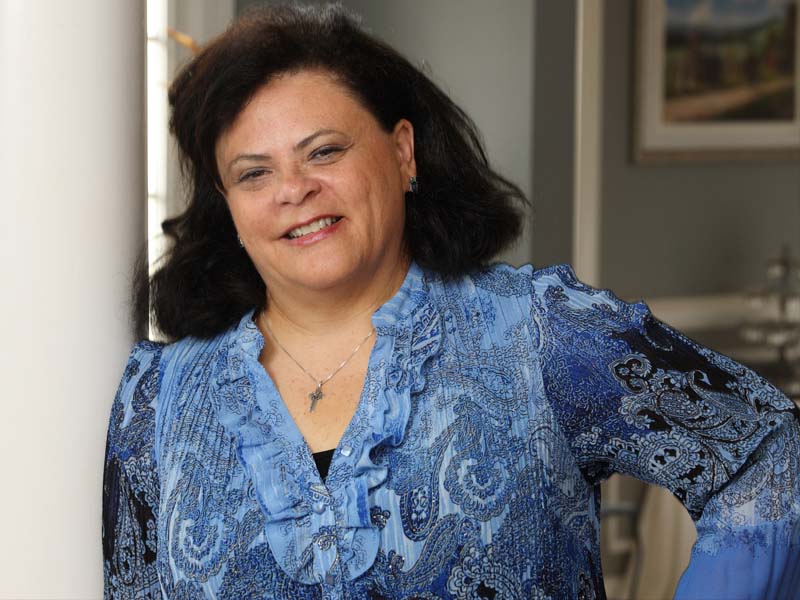For most of her adult life, Marion Dobbins had set her heart on earning a degree from the University of Virginia—but her first priority has always been her family. She and her husband raised two daughters—Sheree and Jasmin—and cared for her aging parents.
After her parents passed away and with her children old enough to be on their own, Dobbins decided it was time for her to pursue her long-deferred college education. She enrolled in the Bachelor of Interdisciplinary Studies program, and began taking classes in Alexandria. “When I was accepted into BIS, it was a dream come true,” she says.
Individual BIS students can shape the program to make it more meaningful for them. In Dobbins' case, this meant learning more about her past. Her ancestors had been part of the Falls Church African-American community since the 1860s, and her family donated land in the 1940s to build an elementary school for black children. She devoted her BIS capstone project to exploring the history of the Civil War- and Reconstruction-era freedmen community in Falls Church. “I have newfound respect for their courage and dedication,” Dobbins says. “It is because of their vision and steadfastness that I am where I am today.”
Dobbins' exploration of her past has shaped her plans for the future. For the last decade, she has been a historical interpreter specializing in 18th- and 19th-century slave life. To further this work, she embarked on graduate studies at George Mason University, completing a master's degree in U.S. History in 2014. Currently, Dobbins is in GMU's Ph.D. program, intending to one day teach at the college level.
“In the BIS program, we are taught to become leaders,” she says. “My mantra is before you can lead you must know where you came from. The capstone project helped me find my beginnings so I can move forward.”
Spotlight
When I Was Accepted Into BIS, It Was a Dream Come True
Image


